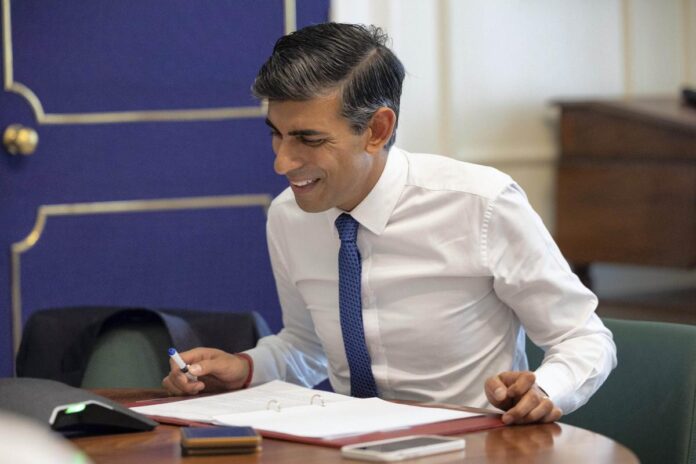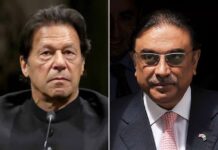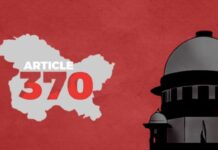The United Kingdom (UK) has been governed by the Conservative Party for over a decade, beginning with David Cameron’s tenure as Prime Minister in 2010. However, political commentators believe the party’s popular support has gradually declined amidst the resignations of Boris Johnson and Liz Truss. Notably, Johnson’s resignation was expected after his administration became embroiled in multiple crises, like ‘Partygate’ and corruption allegations. What was more surprising was the resignation of Liz Truss on 20 October 2022, within 45 days of taking over as the PM.
By Anandita Bhada
Truss’ policies like the proposed reduction of business tax, made her less popular.1 Prior to her resignation, key Cabinet members like Home Secretary Suella Braverman and Chancellor of the Exchequer Kwasi Kwarteng also resigned, making her position tenuous. Kwarteng’s ‘mini budget’ delivered on 23 September 2022, in an effort to boost economic growth, revised tax rules and provided other benefits such as unfunded corporate tax cuts. However, the budget further led to economic downturn, with the UK currency hitting a new low vis-à-vis the US Dollar and the London stock market also shed value. The economic fallout damaged the popularity of Conservatives. According to a survey by YouGov, the Labour Party on 29 September enjoyed a lead of 33 points over the Conservatives.
The Conservatives put their faith in Rishi Sunak, former Chancellor of the Exchequer and runner up to Truss in the previous leadership contest, as best suited to tackle economic woes, including rising inflation. His expertise superseded Truss’s in handling an economic crisis even before, and yet he lost to her earlier. Sunak had successful tenures as the Secretary to the Treasury in 2019 and the Chancellor of the Exchequer in 2020. Sunak’s competitors like Boris Johnson and Penny Mordaunt either refused to contest or could not garner adequate support. Sunak, thus emerged as the best bet for Tories to prevent the loss of power ahead of the next general elections due in 2024. To keep the Conservatives in power, though, he must overcome multiple challenges. Else, the Conservatives could win less than 200 seats in May 2024, compared to the 365 they won in December 2019.
Economic challenges
Ensuring long-term economic and political stability is one of the key priorities of the new prime minister. The cost of borrowing, inflation and cost of living have surged, whereas productivity and wage growth of British citizens have declined. As the lockdown eased and markets started to reopen, the British economy, like many others, witnessed a swift boost in demand, coupled with an insufficient supply of goods. This created a lag in demand and supply in the markets.
The UK government’s main priorities include reversing the economic crises and dealing with the regulations to mitigate such lags. The Autumn Statement delivered by the Chancellor of the Exchequer, Jeremy Hunt on 17 November 2022 includes measures such as steep tax increases and tough spending cuts to reduce the government’s borrowing over time. If the government is to achieve its spending and debt targets, it must tackle one of the biggest financial drains—the energy crisis.
Russia’s military operation in Ukraine has contributed heavily towards this problem. Fuel prices have risen across Europe due to the unavailability of cheap Russian oil and gas. The effect is not only evident in the industrial sectors but even the households are experiencing many fold increase in their monthly electricity bills. Post Russia–Ukraine crisis, European governments have successfully signed energy deals with West Asian and American partners to fill the lag left by Russian energy firms. The UK government has been making efforts to avert household bills from crossing the threshold levels but problems persist in the industrial sector.
Recent surveys indicate that even those who voted in favour of Brexit in 2016 might reverse their decision, if given the opportunity. Swati Dhingra, a member of Bank of England’s monetary policy committee held Brexit responsible for increased prices and decreased wages in Britain. Unsurprisingly, these are not the only issues left unresolved since Brexit.
The Northern Ireland Protocol (NIP) continues to remain a major sticking point while Scotland too remains an issue. In fact, the NIP is a key point of tension between the UK and the European Union (EU), preventing the Brexit deal from being implemented in totality. It is affecting the daily trade of food products, thereby causing immense wastage.
On top of these economic challenges, managing internal divisions and diverging voices within the party can prove to be a complex task for Sunak. The PM was one of the first to apologise publicly for his involvement in the partygate scandal. This upset the Johnson loyalists within the party and getting their assent on important parliamentary matters might not be easy for Sunak. He will have to gain the confidence of the British people to prevent the Tories from going into an early election while safeguarding his position at the helm of domestic affairs.
Sunak has called for removing VAT from household electricity bills and wants to implement temporary but targeted tax cuts to ease the burden on families. There is already an energy price cap helping British households to save 900 pounds as compared to the undiscounted energy bills. All this serves British citizens well but has far-reaching consequences for the energy companies. Moreover, some energy-intensive industries like cement, fertilisers, and steel fear permanent closure. This could affect the livelihood of several families, especially from the working class. Therefore, the UK needs to invest heavily in renewable energy sources and utilise its coastal boundaries to build more offshore wind farms and expand the current cumulative installed capacity from a little over 10GW to up to 50GW by 2030.
Immigration
Sunak has a 10-point plan on immigration and intends to put an annual cap on the total number of refugees allowed inside the UK each year. He intends to combat illegal immigration by establishing a task force to track and deport illegal migrants. This is in line with his predecessors in acknowledging Britain’s broken system of immigration and proposing the deportation of immigrants to Rwanda. But none of them have translated into concrete policy. A major issue that may not see any settlement soon is the issue of small boats carrying migrants from France to the UK. This discord worsens the already strained French–UK ties, which would require a swift resolution, while taking cognizance of the sensitivities involved.
China Factor
Due to deep economic ties, British governments have had a history of having a soft corner for Chinese companies and institutes. However, Rishi Sunak appears to be drawing a different line when it comes to China. He appears committed to closing all the 30 Confucius Institutes in the UK (highest such institutes globally), claiming them to be extensions of the Chinese Communist Party and seen as tools to promote its soft power. These institutes had earlier been accused of espionage and surveillance of Chinese students abroad by many organisations throughout Europe.
Sunak’s intentions were evident during his campaign event in London in August 2022, where he was quoted as saying, “China and Chinese Communist Party represent the biggest threat to our economic and thereby national security”, and the UK needs to be “very robust” in defending itself against the Chinese aggression. However, these pre-election sentiments were missing from Sunak’s address at the G20 Summit in Bali, where he referred to China as a “challenge” rather than a “threat”.
India–UK Ties: FTA Developments
Post-Brexit, the UK’s foreign policy appears to have developed an Asian tilt, and this tilt is likely to be in place even during Sunak’s tenure. In fact, Sunak himself has gone on record to state “India will be a continued focus of U.K.’s foreign policy in Asia, and the current government plans to deepen the ‘living bridge’ between the two countries, which symbolises their strong partnership”. This is evident by the recent signing of UK–India Young Professionals Scheme, due to be launched on 28 February 2023. It is a reciprocal programme targeting the age group of 18–30 years, which will annually permit 3,000 people to live or work in the other country for a maximum period of two years.
The brief rendezvous between Modi and Sunak on the sidelines of the G20 Summit in Bali also focused on issues of trade, commercial linkages, mobility, and defence and security cooperation. Such actions seem to project a new resolve between India and the UK to sign a free trade agreement (FTA), which is expected to triple bilateral trade from US$ 31 billion to US$ 100 billion by 2030.
The FTA has been under negotiations since January 2022. It comprises 21 chapters, each focusing on specific aspects of trade and investment between the two countries. Initially, the deadline for concluding this comprehensive agreement was fixed for Diwali (October 2022), but due to domestic political upheavals in the UK, this deadline could not be met. Out of the 21 chapters in the document, 14 have been mutually approved. In order to finalise the details of the remaining chapters, a seventh round of negotiations will be held in the coming weeks.
However, the key sticking points appear to be related to automobiles, liquor and intellectual property. The Indian passenger car makers are worried about a sharp reduction in the customs duty for automobiles imported from the UK. Such a move will make the British vehicles more competitive and might lead to a loss of local customer share for prominent Indian automobile firms.
In the liquor segment, the tussle is mainly over Scotch whiskey. Currently, India levies a 150 per cent duty on scotch whiskey and intends to reduce that to 100 per cent at the time of implementing the FTA. It plans to further reduce it to 50 per cent in the following 10 years. This is not acceptable to British officials. They have been negotiating for the duty on Scotch whiskey to be levied at 75 per cent at the time of implementation of the FTA, to be further reduced to 30 per cent in the following three years.
Another festering issue is the case of intellectual property rights (IPR) mentioned in the FTA. It is said to impact the production, supply and export of generic medicines from India to developing and economically weaker countries. An allegedly leaked agreement chapter on 31 October 2022 showed that British demand for IPR will lead to a ban on the export of such medicines. This resulted in an outcry from many developing countries which rely heavily on affordable Indian medicines, especially against the backdrop of the pandemic. Any harmonisation of the Indian patents law with that of the UK’s could dilute important provisions which are essential to manufacture generic medicines and vaccines in India. Therefore, India is cautiously treading the IPR issue.
Meanwhile, India has also sought visa liberalisation for its citizens to work in the UK, which contrasts with the British Home Minister Suella Braverman’s remarks in a recent interview. She claimed that Indians are the largest group of people who overstay their visas in the UK. If the two countries were to come to an agreement resembling an open border migration policy, then it would be a divergence from what the Brexit vote stood for. The UK, therefore, appears to be treading cautiously in finding a balance in its relations with Europe and Commonwealth countries.
Significant gains await both countries, if and when the deal is implemented. India–UK services trade, accounting for 60 per cent of the overall commercial activity between the two countries, is expected to increase. The sectors anticipated to reap maximum benefits from the FTA are pharmaceuticals, textiles, healthcare, and food and beverages, including alcoholic beverages. Granting more visas to skilled Indian IT professionals seems to be a mutually rewarding resolution.
The rise of tech-intensive and future-focused industries also hint towards benefits in the Information and Communications sector, including digital services. Looking at the trajectory of India’s growth, several opportunities to expand bilateral economic collaboration appear to be on the horizon. Notably, India recently overtook the UK as the fifth largest economy while the International Monetary Fund (IMF) predicts that by 2027, India’s economy will be a fifth larger than the UK. This gives India leverage to negotiate a more mutually beneficial free trade deal with the UK.
Conclusion
Prime Minister Sunak has his task cut out in putting the British economy back on track. The UK’s aid commitment to the Ukrainian cause will put further pressure on the country’s financial resources amidst the ongoing domestic economic crisis. Sunak’s experience and expertise should come in handy as he balances spending commitments with sound economic management while coming to grips with domestic political and foreign policy challenges.
This article first appeared in www.idsa.in and it belongs to them.












